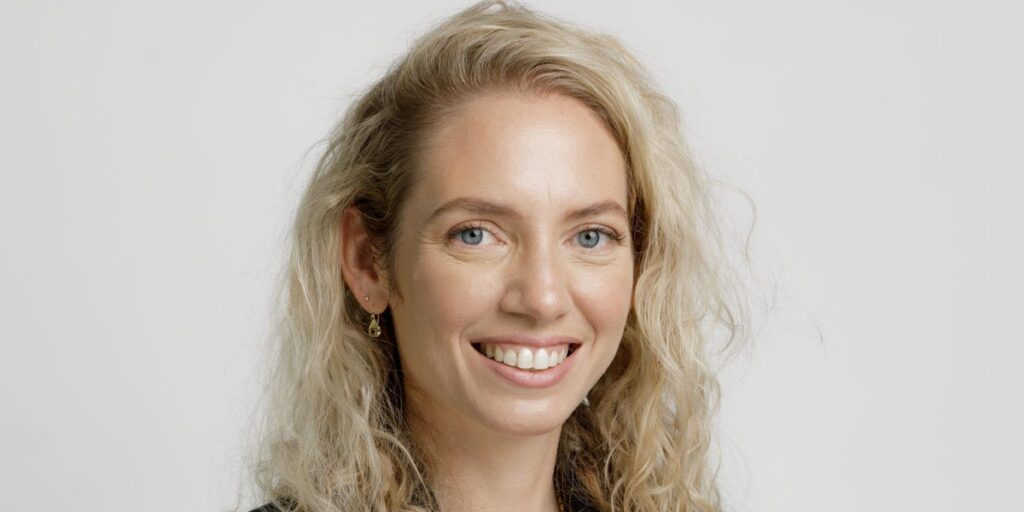Romi Gubes knew her idea sounded outlandish: a small audio-only device that could sit in a senior’s home and detect everything from falls to early signs of cognitive decline.
“It was like science fiction,” she told Business Insider. “When we came up with this idea, everyone thought we were crazy.”
But what seemed far-fetched in 2019 is now a multimillion-dollar reality. Gubes’s startup Sensi.AI just raised $45 million in Series C funding, BI learned exclusively.
Qumra Capital led the round, joined by existing investors including Insight Partners. The raise brings Sensi.AI’s total funding to $98 million.
Gubes, a former software engineer, cofounded Sensi.AI following a crisis in her own family. She learned her daughter was being abused at day care, a discovery she made only because another child’s parents had placed a recording device in their backpack. The experience led her to a larger, more difficult question: how can we keep the most vulnerable people safe when their primary caregivers aren’t around?
She saw a massive opportunity in elder care. By 2050, one in six people will be 60 or older, according to the World Health Organization. And most Americans want to stay in their homes as they age, according to the AARP, a demand that’s far outpacing caregiver supply.
Gubes thinks those trends are pushing the healthcare market toward a breaking point.
“If nothing were to happen, our parents and grandparents won’t be able to get the proper amount of care that they need,” she said.
For years, the elder care industry has relied on systems like emergency buttons or wearable monitors, devices that many older adults don’t like wearing out of embarrassment or fear of stigmatization. Newer monitoring systems incorporate in-home cameras, but some older adults balk at the idea of constant surveillance. Detecting early signs of illness and dementia remains largely out of reach for any of these tools.
Sensi.AI’s discreet audio pods aim to break from tradition. Its ambient listening devices passively capture sound in the home that’s then analyzed using a mix of large language models and Sensi’s proprietary acoustic models. The startup’s predictive AI technology, primarily sold to home care agencies that help people to “age in place,” flags potential issues like confusion, agitation, or changes in daily routine to give caregivers deeper insight into their patients’ health and well-being.
While staff in independent living facilities can keep a much closer eye on senior patients, home care agencies, which may only see a patient for a few hours each week, have far less visibility into that patient’s daily routines, Gubes said.
“These providers are blind to their point of care,” Gubes said. “They’re fully dependent on the senior, who is not always capable of speaking to their quality of care, and the caregiver who may not always share everything you want and need to know.”
Gubes said the startup now works with tens of thousands of home care agencies. Sensi.AI’s emergency alerts are sent to home care agencies in real time, while other patterns the startup detects are rolled up in a care feed that providers can review daily to further tailor their care.
The home healthcare tech market is booming. Sensi.AI is competing with other startups building in-home senior care devices, like Cherish Health, and alongside startups helping home health agencies automate administrative tasks and coordinate care logistics, like Zingage and Axle Health.
Sensi.AI’s annual recurring revenue has grown nearly fourfold in the past year, and Gubes says the startup is aiming to accelerate its growth even further, including by investing in its technology. The company wants to create an agentic layer to autonomously handle some tasks on behalf of providers, like automatically calling seniors or their families when Sensi.AI detects an emergency.
Aside from its technology, Gubes said Sensi.AI plans to use the new funding to grow its network of provider and payer partners to reach more patients, including through insurers’ home care networks and independent living communities.
“We want to get to every senior from the minute they start their aging journey, as fast as possible,” Gubes said.
Here’s the 10-slide pitch deck Sensi.AI used to raise $45 million.
Read the full article here


